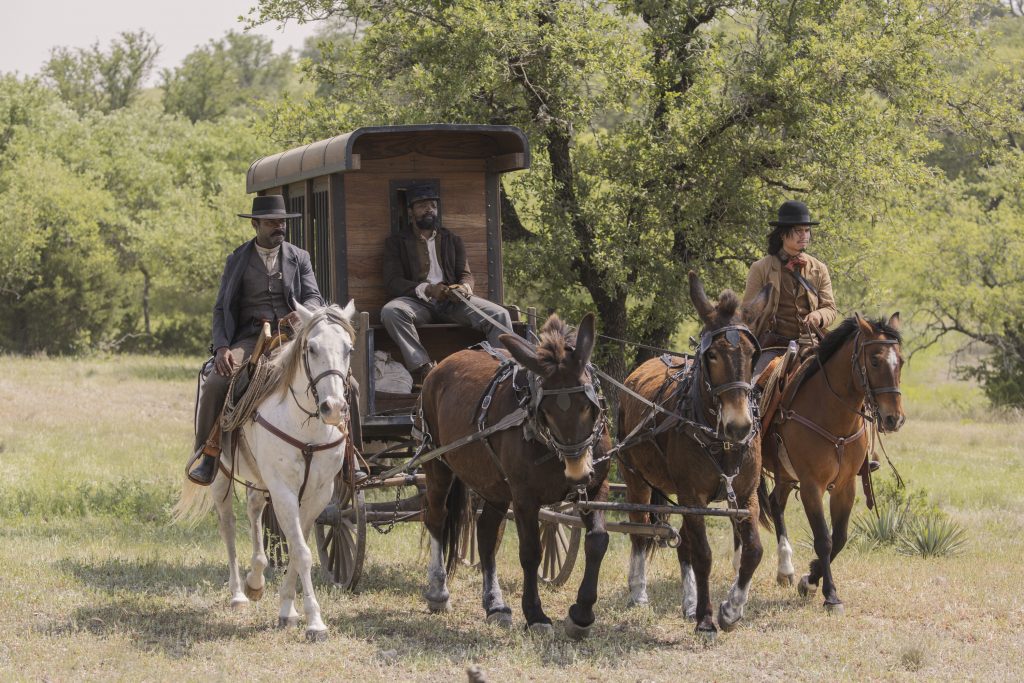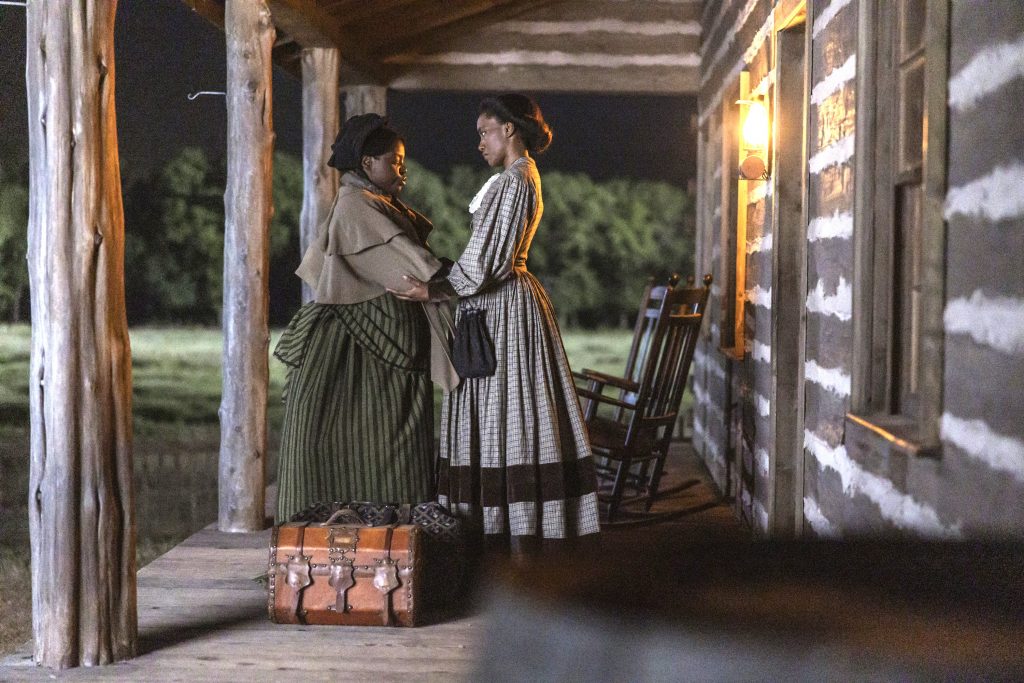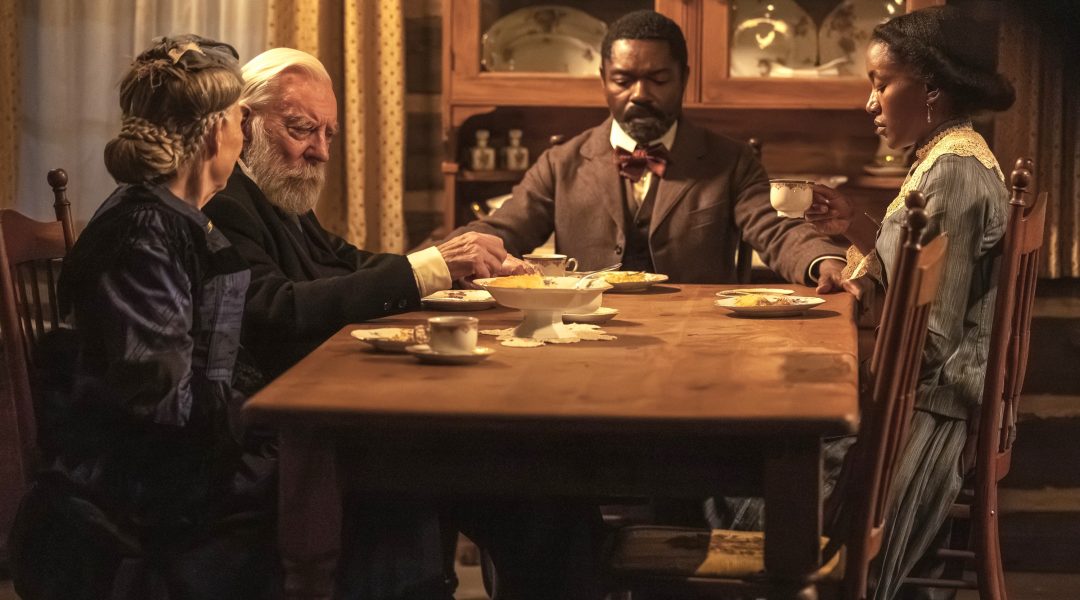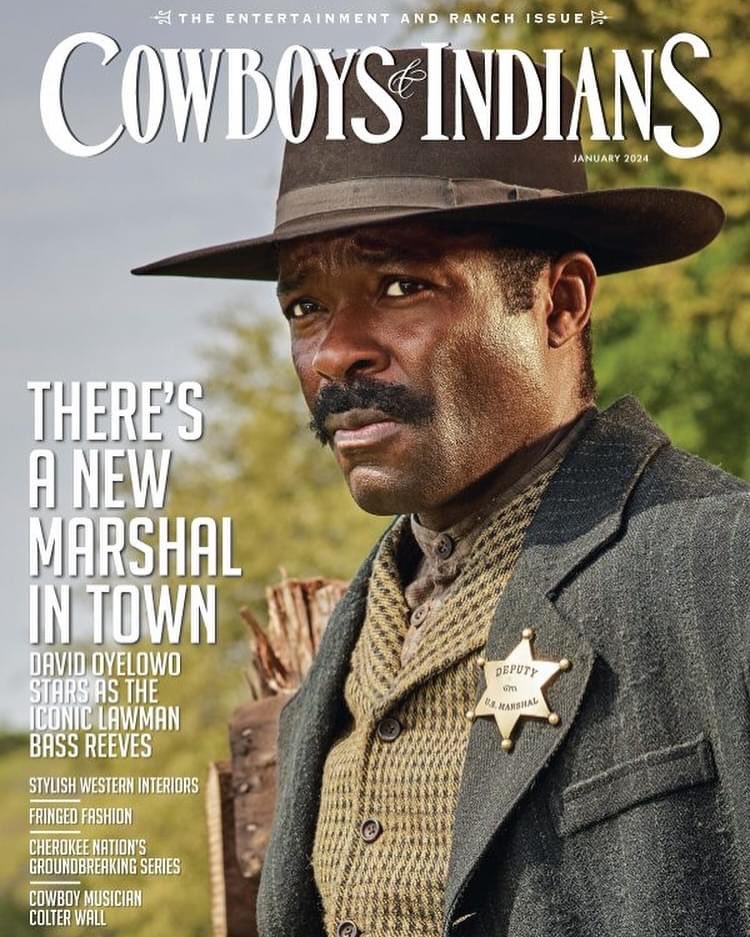Bass is torn between upholding the law and seeking revenge.
Here are some observations prompted by watching Part VII of Lawmen: Bass Reeves, which premiered Sunday on Paramount+. Please keep in mind: There will be scads of spoilers here, so proceed at your own risk.

-
- This second-to-last episode turned out to be the shortest in the limited-run series so far. Maybe too short. We certainly would have liked seeing more of the murder trial that ensued after Bass Reeves (David Oyelowo) fatally wounded Willie Leach (Ivan Mbakop), his new posse man, after the latter set free their prisoner, Moody O’Neil (Tina Lifford), a elderly Black woman who murdered her husband by coshing him with a candelabra. The set-up certainly was attention-grabbing: The episode began with Bass’ arrest, segued to the trial, then flashed back to a time six weeks earlier. But when we finally returned to the courtroom… Well, let’s just say we found ourselves wondering, “Is that all there is?”
-
- On the other hand, we were pleased to see Donald Sutherland’s Judge Isaac Parker playing a slightly more active role in the proceedings. After he and his wife dined at the Reeves home with Bass his wife Jennie (Lauren E. Banks), Parker couldn’t help noticing how stressed out his deputy marshal had become. Maybe he understood all too well how the pressures of capturing and condemning men (and women) for capital crimes could take its toll on those charged with upholding the law. Or maybe he just wanted one of his best deputies to keep from buckling under the heavy weight of his responsibilities. Either way, he opted to give Bass some “lighter” assignments. Like, you know, bringing in an elderly Black woman to stand trial for murder.
-
- All the while, though, Bass remained haunted by the words (and living-nightmare images) of Esau Pearce (Barry Pepper), the former Confederate soldier who killed the youngster Bass “loved like a son” back in Part I, and turned up in Part VI as a Texas Ranger who, in all probability, is the real-life monster behind all those fearsome stories about a “Mr. Sundown” who preys on Black men. “We’re both killers,” Esau taunted Bass, adding that they’ll both wind up in hell sooner or later. Try as he might, Bass found it impossible to shake the suspicion that Esau was truth-telling, not fear-mongering. In fact, he raised the possibility that both he and Judge Parker had blood-stained hands during a dramatically potent scene in which the men conversed in Parker’s office, and revealed a lot about each other’s formative years, before Bass’ sentencing. Parker, we’ve been told, had long ago earned the reputation of being a “hanging judge.” So when Parker eventually declared Bass “Not Guilty,” the deputy appeared more surprised than grateful.

-
- And what about Willie Leach? Billy Crow (Forrest Goodluck) brought the Black posse man along in the first place as a cook. But Willie turned out to be far more trouble than he was worth when, while Bass and Billy were sleeping, Willie set free Moody — who obviously wasn’t as resigned to her fate as she let on — and then, more or less echoing Esau’s words, accused Bass of being no better than a slave catcher. And then, to make things immeasurably worse, Willie brutally mocked Bass’ wife and children, using language that we won’t repeat here. Even if Bass hadn’t been teetering near the edge of a breakdown, he likely would not have taken this lightly. But he was, and he didn’t. Billy indicated he would perjure himself... er, testify in Bass’ defense if Bass were accused of murder. Which he probably did but, alas, we never got to see that.
-
- Meanwhile, back at the ranch, Jennie entertained a visitor: Esme (Joaquina Kalukango), her old friend from way back in the bad old days of slavery, who announced she was leaving Edwin Jones (Grantham Coleman) in large part because, well, as devoted as he was to the cause of his fellow Black folks, he was just as devoted to never leaving his wife for her. Over dinner, Esme regaled Bass and Jennie’s children about how great a shot Bass was, and how he often managed to provide for other slaves during turkey shoot competitions. The children — even Sally (Demi Singleton) — were impressed.
-
- Later, Sally finally told her mom about what went down during after the carnival, when she stood up to a racist white girl and aroused the wrath of the girl’s brother and his buddies. Not long afterwards, someone set up a burning effigy outside the Bass home, a sure sign that Jennie and her children might be in danger the next time her husband and their father is on the road. But she kept her fears to herself, even when Bass announced that he was taking off to settle accounts with Esau. The final scene had Bass, Billy, and Deputy U.S. Marshal Sherrill Lynn (Dennis Quaid) riding off to Fort Worth, where it’s safe to say hash will be settled and blood will be spilled.
Photography: Courtesy Lauren Smith/Paramount+















